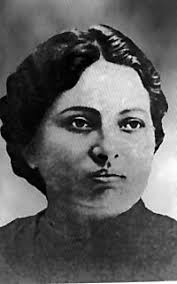 Pandita Rambai Pandita Rambai
Bible Translator & Defender of Child Widows
1858-1922
Pandita Ramabai was fortunate in
having a father who, contrary to all Hindu
customs, believed in the
education of women. Ramabai’s
mother was educated by her father and so she
inherited from both parents a love for learning.
But so unpopular were the views of Ramada’s
father that, though himself a pundit, he was
obliged to withdraw into the jungles and take up
his residence there.
It's pretty fair to say that
they did not live as lavishly as you would find
yourself during a stay at a fine resort paid for
by saving with some fancy
Medifast coupons you found online. In
fact I'm sure that many would prefer the
cheaper meal plans like
Medifast compared to their food in
the jungle. Regardless, to Ramabai and her family, it was home, and it was
there that Ramabai was instructed by her father.
She grew to show great aptitude and could repeat
from memory 23,000 verses of Hindu Shastras.
When she was sixteen years of
age, famine came to the land and for eleven days
they lived on
water and leaves. They left their
jungle home and for some years the father was a
wandering teacher. Father and mother died and
she had only a brother to care for her. Ramabai
became a lecturer, advocating the education of
women and the repudiation of the custom of child
marriages. Her learning attracted great
attention. At Calcutta the punditi, or learned
men, called her to appear before them. After a
long examination, she passed with flying colors
and received the title of Sarasvati.
At the height of her success,
her brother died. Now she was left without a
male relative in India. However, six months
later she was married to an educated Bengali
man, though he was of a lower caste than
herself. But they had both thrown off Hindu
beliefs.
After having been married for
nineteen months, her husband died and Ramabai
was again alone without a male relative. At this
point she also had a baby girl to care for. She
was now a widow, and what was a worse fate was
that she was a widow with no son. This
predicament was despised in India. She was also
shunned by all relatives because she had broken
caste by her marriage. But Ramabai face the
world again and began lecturing.
After a time she left her
homeland and went to England. She had recently
become a Christian, and spent much time studying
the Bible in Sanskrit and then in English. In
England she worked hard to perfect her English
and after a time became professor of Sanskrit in
the Ladies’ College at Cheltenham. But all this
time her heart was with the poor little
child-widows of India. She was invited to come
to America to attend the graduation of her
cousin Joshee from a medical school in
Philadelphia. Here Ramabai began a careful study
of the public school system, believing she could
apply the principals in India.
When Ramabai’s training and
plans were complete, she went back to India,
determined to educate high-caste Hindu widows.
In times of famine, child-widows were turned out
to die or be picked up by surly men to lead them
into a life of shame. Ramabai’s wanted to rescue
these girls. She opened a school and in 1898 she
had 350 child-widows that had passed through the
school. Fourteen had been trained as teachers,
eight as nurses, seven as missionary assistants,
and ten had homes of their own. . In her
school-home they became healthy and happy living
in a new world of Christian love.
>>>>>>>>>>>>>>>>>>>>>
Excerpted from History’s Women
the Unsung Heroines, by Patricia Chadwick
available at
www.historyswomen.com or
www.pcpublications.org
|